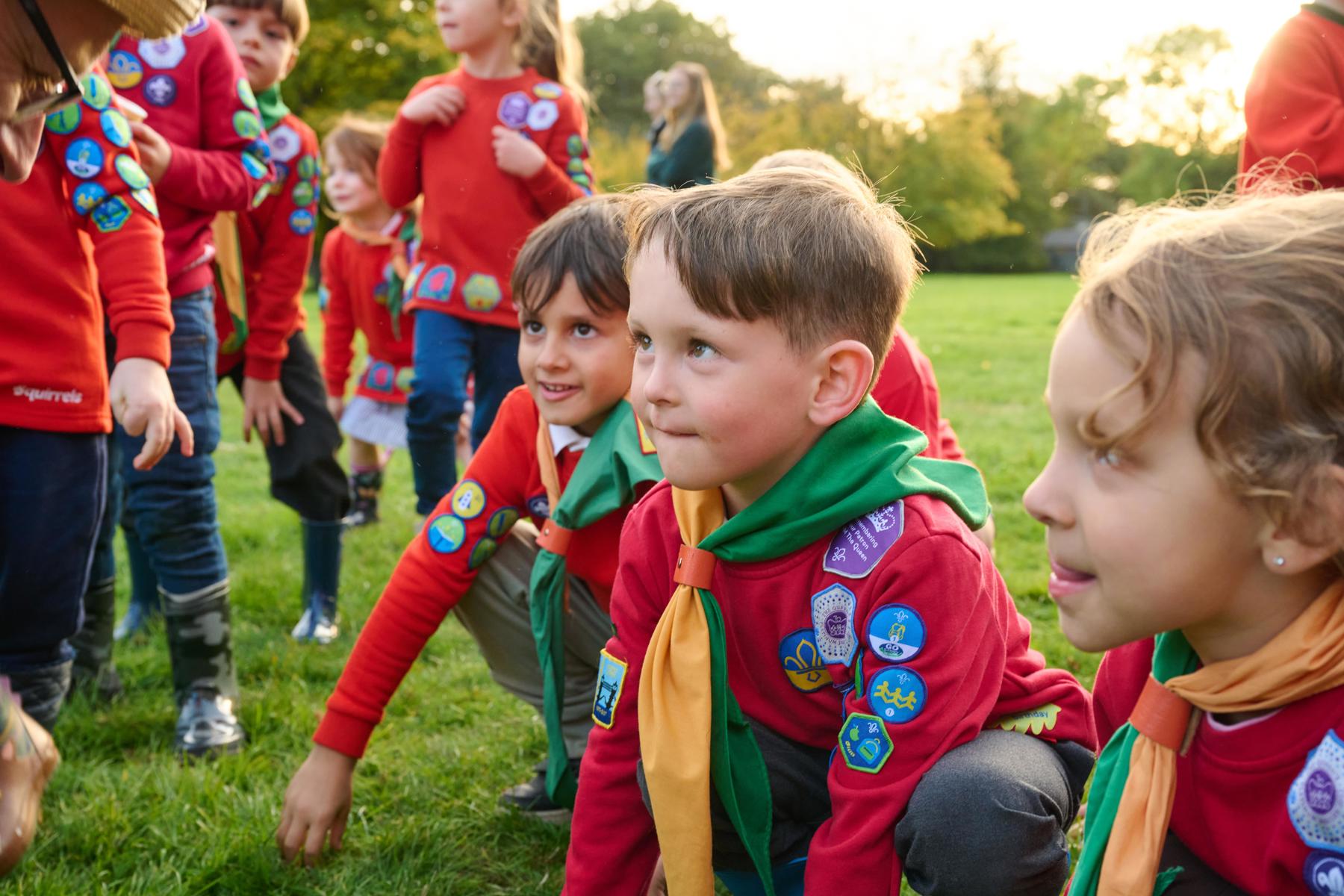Adjustments to badges and awards
Making adjustments or adaptations for young people with additional needs, medical conditions or disabilities can support and enable them to access their badge and award.
Every young person who participates in the Scouts Programme, including badges and awards, should face a similar degree of challenge. Therefore, requirements can be adapted according to each young person’s individual needs.
The guiding principle throughout our Programme is that young people are being challenged, while having fun. The requirements for badges provide a wide range of choice for young people, with most being able to access the badges of their choice.
You may need to adjust the challenge to make sure that young people of different abilities all experience a similar level of challenge.
Adaptations made for young people with additional needs, medical conditions or disabilities should be aimed at improving access to the badge, rather than reducing the challenge of its requirements or changing the focus. This may involve adapting some or all of the requirements and/or providing appropriate additional support.

Making adaptations
It's entirely up to the Group or Section volunteers, in consultation with the young person and their parents or carers, how to adapt some or all of the badge or award requirements.
Some things to consider are:
- Whether the individual requirements can be adapted or whether they need to be replaced by an entirely different activity.
- Whether to change the requirements for one young person or whether it is more appropriate to change them for the whole section to make sure the young person doesn't feel singled out.
- Adapting some of the individual challenges into a team challenge, so that the young person can use their individual strengths and abilities to achieve a team goal. Again, this avoids one young person being singled out.
- When a badge or award is being undertaken as part of a group activity, it may be appropriate for all of the young people to be involved in the decision to alter the requirements. This'll support the young people to better understand the reasons for the changes and be able to offer peer support.
In some instances, it may be appropriate to support the young people in your section to understand the adjustments, explaining that being fair doesn’t always mean everyone doing exactly the same thing. In this situation, fair is about everyone being able to access the activity and to experience a similar level of challenge.
The nature of your conversation should take into consideration the age of the young people involved, the specific circumstances and the adaptations being made.
Adaptations to Scout Top Awards and Duke of Edinburgh
There is a different policy for the Scout Top Awards, meaning the King Scout Award and Explorer Belt, and the Duke of Edinburgh (DofE) Award.
Flexibility is built-in to these awards to support participation of all young people. However, due to their status as Top Awards, adaptations should be agreed and approved before activity is undertaken.
Adaptions to the Scout Top Awards should be approved by the County Commissioner.
Adaptations within any of the Duke of Edinburgh awards (Bronze, Silver and Gold) needs to be approved in advance by the licensing organisation.
For further support
For further support and guidance please contact support@scouts.org.uk